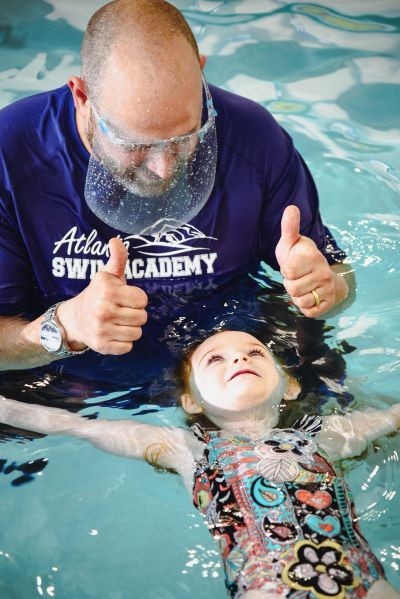Safe Summer Practices
With the warm weather making its way in, everyone is excited to make their way back into the water. We're all for it! Before you dust off your fins and goggles (unless you've been swimming with us year-round), we want to make sure safety is at the top of your list, just like it is on ours!
Here's a few tips on keeping days in the water fun and safe:
1. Limit access to bodies of water, like pools or lakes.
Always make sure your kids know not to go near any body of water without an adult. If they're too young to understand this, make sure there is something in place to prevent them from wandering to it on their own. Whether it is a fence, baby gate, or a baby-proof lock on the door- is there something to keep your child from gaining access to the water? Also, be sure to double check when you're renting a vacation home with direct water access as-well. Do they have safety features in place?
2. Always have a designated watcher.
Have you heard the ad on the radio of children playing in the pool, then the narrator asks, "did you hear the child drowning?". This is an excellent example of the importance of a designated watcher. Drowning, often times, is a silent scenario. It is vital that, even with a crowd of adults, someone is directly in charge of watching the children. This removes any assumptions of "I thought someone was watching" and ensures at least one person is staying aware at all times.
3. Floaties and inflatables are not life-saving devices.
We all love the big, inflatable flamingo, but he's not very good in a life-saving scenario (no life-guard certifications available for flamingos, unfortunately). Make sure you have size and skill appropriate floatation devices for your child. For boating, Georgia law requires all children under 13 years of age wear a USCG–approved PFD while on board any moving vessel.
4. Bad Weather- Don't Swim!
Swimming during a storm is a bad idea. Lightening can travel through the water and cause electrocution. It's best to use the 30-30 rule when dealing with storms. When you see a flash of lightning, begin counting for 30 seconds. If you hear thunder before you hit 30, the storm is too close, and you need to exit the pool. Wait at least 30 minutes after the last visible lightning strike before re-entering the pool. In the case of ocean swimming, it's best to double it to 30-60.
5. Incorporate swim lessons!
Atlanta Swim Academy would love to take part in teaching your child safe swim techniques. We start our lessons with children as young as three months old. Once they're older and comfortable in the water, we begin incorporating water safety into their lessons.
We're excited to start this season off with you and your kids! Let us know if you have any questions regarding water safety or if you would like to know more about what we cover in our year-round lessons! Happy Swimming!




Comments